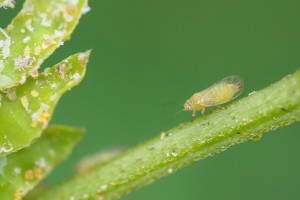Leucaena
Leucaena is a small tree, commonly growing to 3-15 m in height but can reach up to 20 m in height. It is a fast growing, short lived (20-40 years), nitrogen fixing plant that does well in a wide range of environments. Leucaena produces vast numbers of hard coated seeds which remain viable for at least 10-20 years. These seeds allow the plant to spread rapidly and colonise new area. Leucaena can be used for timber, firewood, shade, fodder and erosion control, but intensive management is required to prevent it from becoming invasive.
Impacts
Leucaena can quickly outcompete and replace other vegetation, disrupting natural successional processes. Coastal areas, semi-natural areas, roadsides, waste ground, plantations, hedgerows, recreational areas and agricultural land are all at risk. Biodiversity is reduced and ecological processes such as nutrient cycling and soil chemistry are affected. Leucaena can be toxic to animals and can reduce growth in pigs. Its recommended that leucaena should not make up more than 10% of the diet of pigs. Leucaena’s ability to rapidly colonise newly disturbed areas makes it particularly well-suited to take advantage of changing environmental conditions, including those caused by climate change. Therefore, the impacts of leucaena are expected to increase in the future if the plant cannot be better managed.
Control methods
Leucaena has a large root mass that can resprout vigorously if the plant is cut off at ground level. Additional treatments are required to ensure plant death include herbicide after felling or using a cutter bar operating at 30cm below ground level to cut through the root system. This makes control expensive and labour intensive, and environmental impacts of using herbicides needs to be managed. However, a natural enemy is available which offers new hope. A leaf sucking psyllid (Heteropsylla cubana) can be highly damaging to susceptible varieties of leucaena and will not attack other plants. This natural enemy can be used to reduce the invasiveness of leucaena.
Key contact

